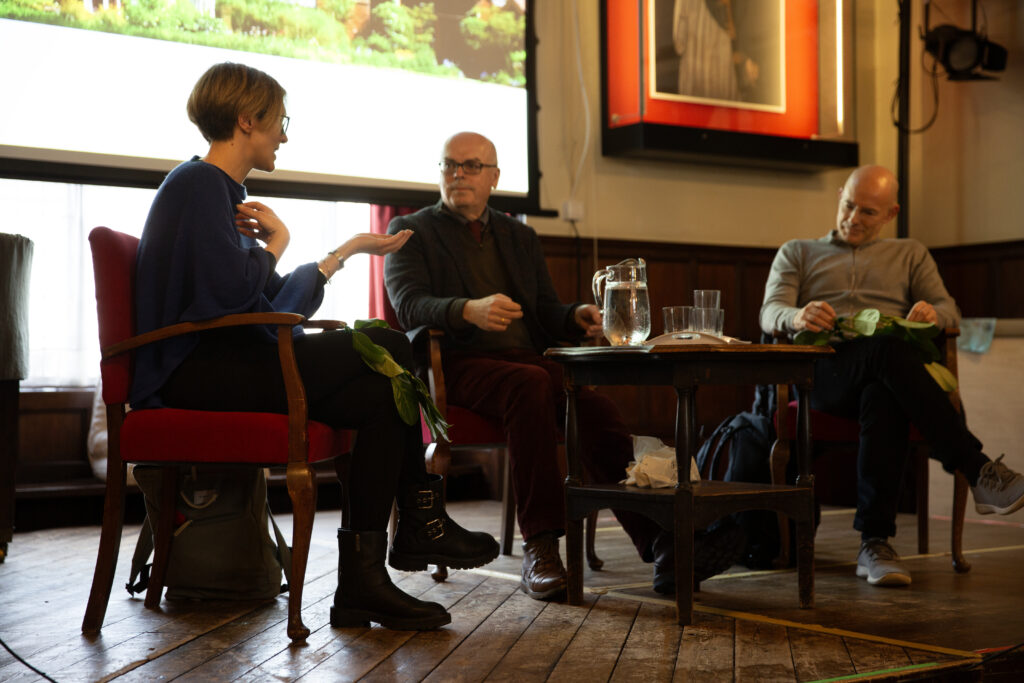Postgraduate students at the Shakespeare Institute have the opportunity to join the regular Thursday Seminars. MA Shakespeare and Creativity student Rachel writes about attending the seminar with the RSC Co-Artistic Directors, Daniel Evans and Tamara Harvey.
On Thursday afternoons, all members of the Shakespeare Institute come together (online, or in person) for a weekly seminar, delivered by a range of esteemed academics and creatives. On the 1st February, we were lucky enough to participate in a Q&A with Co-artistic Directors of the RSC, Daniel Evans and Tamara Harvey.

The New Season
The seminar began (much to our guests’ surprise, alarm, and delight) with a presentation of comically large laurel crowns, representing their acceptance of Honorary Fellowship at The Shakespeare Institute.
Once this brief ceremony was complete, Evans and Harvey launched into discussion about the upcoming RSC Season, and their own involvement in the projects (Evans staring in Marlow’s Edward II, and Harvey directing Shakespeare’s Pericles). Topics ranged from reflecting on the artistic history of the RSC, to the importance of text and verse, to the unpredictability of audience reaction.
I found their discussion on how they selected this season’s productions based off their excitement about the artists, rather than the Shakespearean text, particularly illuminating. I was also fascinated by their focus on using classic text to speak directly to 2024 and telling our most urgent stories in a joyous, rather than an instructive sense.
Co-Direction and Collaboration
Collaboration was a prevalent theme throughout the seminar. Evans and Harvey conversed about how the globally recognized, but notably British, RSC and Shakespeare’s texts in general could be used to cross boarders and, through theatre, project a kinder, humbler, and more collaborative notion of “Britishness”. Equally important is inviting production and new writing from artists across the world to the RSC stages, creating a rich, reciprocal exchange of creativity.
On a smaller scale, they also described the benefits of collaboration regarding their choice to co-direct. They spoke of how they can bounce ideas off each other, share the practical duties alongside their individual artistic ventures, and, most significantly, ensure a greater level of care for the stories and the audience.
Application and Relevance
As well as being a unique enrichment opportunity, this Thursday seminar also provided valuable food for thought to be used throughout my MA course. As a Shakespeare and Creativity student, I will be completing a module called ‘The Shakespeare Ensemble’. This involves creating a new piece of theatre based on the brief “Talking back to Shakespeare / Talking to the 21st Century”, which will be performed at The Other Place theatre in June.
Evans and Harvey’s insights will no doubt influence our conversations about how we are both in dialogue, and at tension with Shakespeare’s texts. Additionally, they set an example of efficient and dynamic artistic collaboration, which will be vital to the formation of our own ensembles, both in the module and in our future careers.
